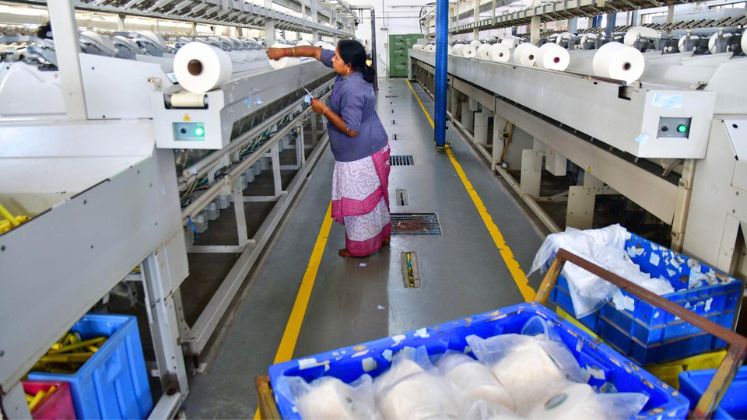
Telangana’s textile industry has brought attention for advisory to banks on working capital, for the Goods and Services Tax (GST) on all textile products to be rationalised, and for action to be taken against retail chains and e-commerce sites that engage in unfair trade practices.
In a memo to Union Minister of MSMEs Jitan Ram Manjhi, Ammanabolu Prakash, president of the Telangana Federation of Textile Associations (TSFTA), stated that the textile and apparel sector, which creates a significant number of jobs in India, is going through a period of extreme stress and requires intervention and support measures.
During the Minister’s visit to Hyderabad, Prakash made a plea in the memorandum he submitted on behalf of TSFTA and the Telangana State Federation of Chambers of Commerce & Trade (TSFCCT) to rationalise the GST on all textile products to a uniform 5 per cent in order to guarantee affordability, process simplification, and compliance ease.
Other issues raised in the memorandum included banks’ reluctance to provide working capital to textile units and small traders despite the existence of various credit guarantee schemes, the need to streamline loan disbursement under CGTMSE and ensure timely credit to manufacturers and retail traders, and the provision of export incentives and training for textile MSMEs with an eye towards the global market.
The issue of organised retail chains and e-commerce platforms using steep discounts and unfair trade practices was also brought up. The two organisations stated that laws should be created to guarantee equitable competition and safeguard traditional businesses and offline retail.
Additionally, they wanted wholesale and retail merchants to be given consideration for all MSME programs, including procurement-related discounts, incentives, and subsidies, rather than simply priority sector loans. The agreement also addressed the necessity for infrastructure upgrades at textile clusters and the imposition of discounted power tariffs.
According to Prakash, the MSME Ministry’s assistance is essential to maintaining livelihoods and guaranteeing this sector’s continuous contribution to the national economy.






